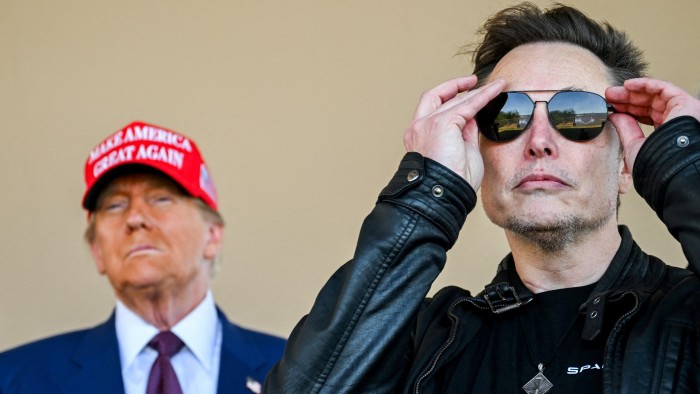Unlock the White House Watch newsletter for free
Your guide to what Trump’s second term means for Washington, business and the world
The writer is professor of space policy and international affairs at George Washington University’s Space Policy Institute
The feud between Elon Musk and President Donald Trump is no mere sideshow of American political theatre. It is a destabilising clash with real consequences for the governance of space and global security. Trump’s threats to cancel SpaceX contracts and his followers’ calls to nationalise the company are not just reckless; they are potentially catastrophic.
At the centre is the space and satellite company that Musk has transformed into an industrial behemoth. No other company or state actor can match SpaceX’s cadence, cost-efficiency or orbital infrastructure. Since 2019, it has launched more satellites than the rest of the world combined. More than 7,300 are currently active. Its nearest competitor, OneWeb, a subsidiary of French group Eutelsat, manages fewer than 700.
This gives SpaceX an outsized role in both civil and national space efforts. The US depends on it to ferry astronauts to and from the International Space Station, a critical capability since Nasa’s retirement of the space shuttle in 2011.
The Pentagon is similarly reliant: SpaceX has conducted roughly 70 per cent of successful national security space launches since 2019. It has also secured over $2bn in classified and unclassified contracts, including work developing persistent imagery for the National Reconnaissance Office, secure communications for the Space Force and missile warning for the Space Development Agency. These missions are crucial to the US effort to build a resilient, proliferated space architecture capable of surviving conflict.
Threats to cancel SpaceX contracts carry serious legal and geopolitical risks. A politically motivated attack on SpaceX would not only endanger these contracts, it would do lasting damage to the credibility of the US as a reliable partner in strategic industries.
A forced divestment, liquidity crunch or regulatory action could trigger significant disruption across global space and telecoms networks. The feud with Trump escalates these risks, raising structural liabilities for the strategic autonomy of the US and its allies. It illustrates the way in which geopolitical risk, regulatory scrutiny and operational fragility have all converged in one person: Musk.
Starlink, the satellite communications subsidiary of SpaceX, has been indispensable to Ukraine’s war effort, enabling secure communications, drone operations and artillery co-ordination. But control over the network rests with Musk himself. This is a clear challenge to the principle of Westphalian sovereignty — the notion that states alone control the use of force within and beyond their borders. The idea that a billionaire executive can shape military operations without democratic oversight or legal accountability ought to concern every government that relies on commercial satellite services.
What can be done? First, the US government must reduce its dependence on any single commercial provider. Diversification of launch services and supply chains is essential. Second, national defence and foreign policy should not hinge on the decisions of private individuals. Clear legal and institutional frameworks are needed to delineate responsibilities and authorities in the space domain. Third, allies and partners should co-ordinate to ensure that essential communications and satellite services cannot be held hostage by domestic political rivalries or commercial disputes.
The Musk-Trump feud is not simply a personal fight — it is a wake-up call. Even if their relationship is repaired, the risk must be reduced. Whether through legislation, international norms or deeper public-private partnerships, we must ensure that we govern critical space capabilities more responsibly.
